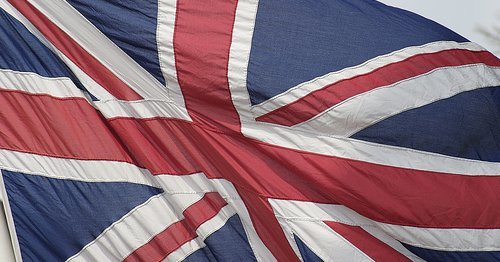PRO: Both sides benefit from Britain’s membership:
- Great Britain is no longer a world (super) power. Even American President Obama would prefer an engaged, influencing Britain in Europe. A British isolation by choice away from the EU is strategically harmful;
- Britain needs Europe for financial regulation. The ‘City of London’ hosts most of Europe’s financial market. To be able to influence European regulation, Britain must work in and with Europe;
- The EU needs strong members and partners. Especially during the current crisis. An international regulation of the financial markets can only take place when Europe acts as one in negotiations with the United States and other major players. This includes Great Britain in Europe;
- The British government shares basic views: reform-oriented in economic policy, pro-American, liberal how society should be regulated;
- European workers benefit the British economy. They take on jobs British workers reject and are skilled. Furthermore, their contribution to the British economy through consume and taxes is greater than their cost;
- Britain is the second largest economy in the EU and is engaged in the areas of the Single Market, competition, the European Security and Defence Policy (ESDP) as well as on enlargement. The EU is a stronger counterweight to China and the United States with Britain in it;
- Brown is no longer Prime Minister. He was the prime reason in Tony Blair’s mainly pro-European government for why the EU is even less popular in Britain compared to 1997 and is himself responsible for preventing Britain’s membership in the Euro. Though David Cameron is even less Euro-friendly than Brown, his deputy Nick Clegg is a Europhile. Despite a euro-sceptic foreign minister, Clegg will probably be able to bring Britain closer to the EU;
- The British love the budget airlines such as EasyJet and RyanAir and like to travel abroad to the rest of the European continent. All of this (including roaming) has become less expensive thanks to the EU;
- If the EU makes a decision that is not supported by the British and some others there is now the possibility for a ‘two-speed Europe’ as is the case with bi-national marriages in relation to divorce law (article 20 of the Lisbon Treaty states that an increased cooperation of some member states is possible when a small minority of EU member states is blocking a decision). Therefore one does not always have to agree.
- Finally, it is worth checking The Independent’s list from 2007 for why the British ‘love the European Union’: “Making the French eat British beef again” and “Europe has revolutionised British attitudes to food and cooking” are only some examples.
CON: The British are a disturbing factor:
The British do not like Europe, which is visible on a regular basis in the Eurobarometer surveys. Currently only 30% think membership of the EU is a good idea. In 2008, a third was even in favour of leaving the EU. If the people on the other side of the channel do not want to be part of the community, why doesn’t somebody just kick them out? Since the Lisbon Treaty they can leave. Though there are no surveys on whether the continental Europeans want the British in the EU, it can be assumed the result would be a clear NO.
If the people on the other side of the channel do not want to be part of the community, why doesn’t somebody just kick them out?
So what do the British contribute? Since the beginning of European integration, Britain has always been a disturbing factor that had to be bridged. It started with the European Coal and Steel Community that Britain wanted to join only to form the new construction according to their vision, meaning to water it down. As a result of the negotiations, the government did not clearly commit to integration but wanted access once the communities (European Coal and Steel Community, European Economic Community and Euratom) worked. Then Charles de Gaulle, who assumed a Trojan Horse of the United States and who was probably correct about this, could still stop them. After the Kingdom joined in 1973 the leaders showed once more that the Anglo-American pact was more important than the rest of Europe. This could be last seen with the Iraq War when it could be clearly seen that the British are the lapdogs of the Americans. Further, in domestic affairs, the island complicates things, remembering Thatcher and the Rebate, the rejection of the Euro, the withdrawal of the British Conservatives out of the European People’s Party (EPP) and the rejection of tougher regulations of the financial markets.
The only use of British membership is in economic terms. Germany alone gets 20 billion Euros net annually through trade. Therefore: Political cooperation should be stopped, but economic relations should remain. And if the British government at one point should choose to act against fundamental EU interests then we can simply reintroduce tariffs and bring the economy of the island to a standstill. Blackmailing is something us continental Europeans learned from Thatcher.
(Please note: This sections shows two authors’ positions against one another. These are somewhat purposely polarised to stress the conflict. The projected opinions therefore do not necessarily represent the authors’ personal opinion.)




1. On 7 July 2010 at 12:04, by Toni Giugliano Replying to: Pros and Cons: Great Britain in the EU
Replying to: Pros and Cons: Great Britain in the EU
Guys this is an interesting article, or rather an interesting style of article, given that you say this is not necessarily your opinion. However I don’t understand the aim given that it has no obvious conclusion. Is the idea simply to highlight some of the pros and cons of British EU membership?
Also, who is the article directed at? Is it a critique of British governments / leaders, the people of Britain, the United States or the rest of the EU? Because it could be any or all 4.
2. On 7 July 2010 at 13:24, by Valery Replying to: Pros and Cons: Great Britain in the EU
Replying to: Pros and Cons: Great Britain in the EU
The “pros” seem to be — most of them at least — “pros” for Britain. The benefit for Britain for being a member of the Union are indeed much greater than the benefits ofr the Union to have Britain as a member...
Considering that the Union itself is an half-baked project, the cost to have a british governement that is opposed, whoever is in charge, to the political objectives of that project, are much higher than the economical benefits to include the UK in the Union. BTW those benefits would be the same if that county was only a member of EEA instead.
3. On 14 July 2010 at 15:09, by Alvar Sawicki Replying to: Pros and Cons: Great Britain in the EU
Replying to: Pros and Cons: Great Britain in the EU
The thing that worries me the most, apart from the other cons, is the cooperation (well, more like servitude) between the islanders and the Americans. The last thing we need in Europe is the US government telling us how we should run the integration process or blocking the emergence of a united Europe.
4. On 11 November 2010 at 01:01, by ? Replying to: Pros and Cons: Great Britain in the EU
Replying to: Pros and Cons: Great Britain in the EU
this article is very good.However i would like to ask a wider question.Has the UK ever been comfortable with the idea of EU integration?
5. On 25 October 2011 at 03:25, by Drew Replying to: Pros and Cons: Great Britain in the EU
Replying to: Pros and Cons: Great Britain in the EU
The EU as it stands is in dire need of some reform. We cannot keep going on like we all have our little clics and clubs where if your face does not fit you’re not it. Speaking as a Brit we have some of the worst politicians in the EU and the average Brit is not someone anyone has much respect for (Not even the average Brit), our weather is terrible, our food is bland to say the least, we are taxed and told what to do by unelected idiots Brussels (Which really annoys us). But one thing I have to most defiantly put right...we hate the Americans more than we hate the back stabbing French! :-P
6. On 13 January 2012 at 02:48, by Sutton Replying to: Pros and Cons: Great Britain in the EU
Replying to: Pros and Cons: Great Britain in the EU
wow as a Brit, a young Brit in my twenties I have got to say its great how you all generalise a nation and its people. Bland food, bad weather geez mate cheer up, you live up north right, global warming will have the place baking in no time. We’re a mixed multi cultural pain in the ass nation who don’t want to be in the EU, don’t want to be the US’s plaything and just want to live it up, I love it here. Every government needs reform to some extent every government is corrupt so singling out Britain just sounds like some pro EU bitterness that we don’t generally want to be in. yeah the EU sucks cause its corrupt and panders to France and America push us around but we are a charitable nation who even when we’re poor we donate to other nations who are in crisis. I’m proud to be English and can’t wait for the day when our government decides to put aside the EU and gets some new mates. Wait for it you know it’s coming...common wealth, I know you’re disappointed but I’d like some free movement with Australia and Canada please. I know its not practical but a girl can dream.
7. On 2 April 2012 at 23:16, by I want out Replying to: Pros and Cons: Great Britain in the EU
Replying to: Pros and Cons: Great Britain in the EU
Difficult to think of many pros and in relation to those you raise I would counter :- • We are not a super power, I can live with that, neither is the EU which consistently fails to take any positive action on any serious issue beyond making noise. Military strength within the EU lies almost exclusively with France and the UK and we can chose to work with the USA or not as we wish. Please do not confuse working with the US as being somehow in the control of the US. • We are perfectly capable of regulating our own financial markets and indeed have gone further than the EU in many respects regarding doing so. • We have a pro trade bias in goods and services. The EU constantly frustrates free trade in services. • Easier travel perhaps but then again is it really any easier for us to travel to Germany than to Russia ? Most visas are simply a way for the host country to tax travellers so they don’t exactly go out of their way to make it difficult. The question of workers travelling and doing jobs in the UK that others can already do adds significantly to unemployment issues. • The EU has reduced it’s economic importance in the World consistently over the decades due to inflexible rules and lack of competitiveness. Being a member is therefore in increasing irrelevance. • Tony Blair never dared try to join the Euro because he knew without any doubt at all he could never persuade people to vote for it. It was the people not Brown who stopped the UK joining the single currency, it’s called democracy. • The two speed Europe is now formally existent after December 2011 and you could easily argue it has since the Maastricht Treaty was signed so please don’t threaten that.
Cons are much easier to identify :-
• Net contribution of 6.9Bn Euros this year rising to 9.3 in 2014. • Lack of democratic accountability or tradition within the EU e.g. EU providing significant funding for pro EU campaigns with no balanced for dissenting views. Yet referenda still regularly lost and then returned to voters to get the ‘right’ answer. Replacement of elected governments with Brussels appointees. Parties told what they can and can not do after election e.g. Irish and Spanish elections. Put the latest treaty to the vote and see how the common people feel about the loss of sovereignty. (Of course only 12 countries need to agree it don’t they so even if Ireland does vote no it makes no difference.) • The ESM treaty creates a body which is essentially above and beyond all control and unaccountable to anyone. The latest and greatest leap away from the people. • Lack of understanding of UK culture and outlook. (The comment about bland food is illustrative). We tend to be outward looking to the World; the mainland continent is more inward looking. (In short De Gaulle was right) • Too much of our heritage is ignored or denied, simple example traders locked up for selling fruit and vegetables in imperial measures rather than metric, isn’t that for us to decide. If everything must be standardised across the continent, I suggest English as the standard language. How will that go down ? • Finally given the lack of popular mandate (indeed the word populist is positively an anathema to the EU), can anyone think of an artificial political construction that has been created and lasted any length of time against the will of the people without use of large scale repression. E.g. USSR, Austro Hungary, Yugoslavia etc. If I am wrong just put the proposition of a Federal Europe to your own electorates and get the support. (But don’t forget France, Netherland, Sweden and Ireland have all got it wrong in the past.)
By the way, the level of UK support for the EU has in fact dropped from the 30% you quote to 20% in the latest Eurobarometer Survey and when the next full survey is produced I would expect it to fall lower. Lets see how UKIP do in the next EP election.
Anyone with eyes to see or ears to hear would recognise that the UK only wants a trading bloc. The European political elite know this as well so why is it such a shock that the UK is so difficult. Indeed the only reason Edward Heath and Harold Wilson were able to persuade the UK to join and vote to stay in the EEC respectively was by misrepresenting what it actually was. You will not find a single UK politician of any party openly supporting a Federal Europe (even Nick Clegg) because it would be complete and utter electoral suicide.
8. On 19 March 2015 at 08:28, by hedewig Replying to: Pros and Cons: Great Britain in the EU
Replying to: Pros and Cons: Great Britain in the EU
hi this is hedi <3
Follow the comments: |
|
